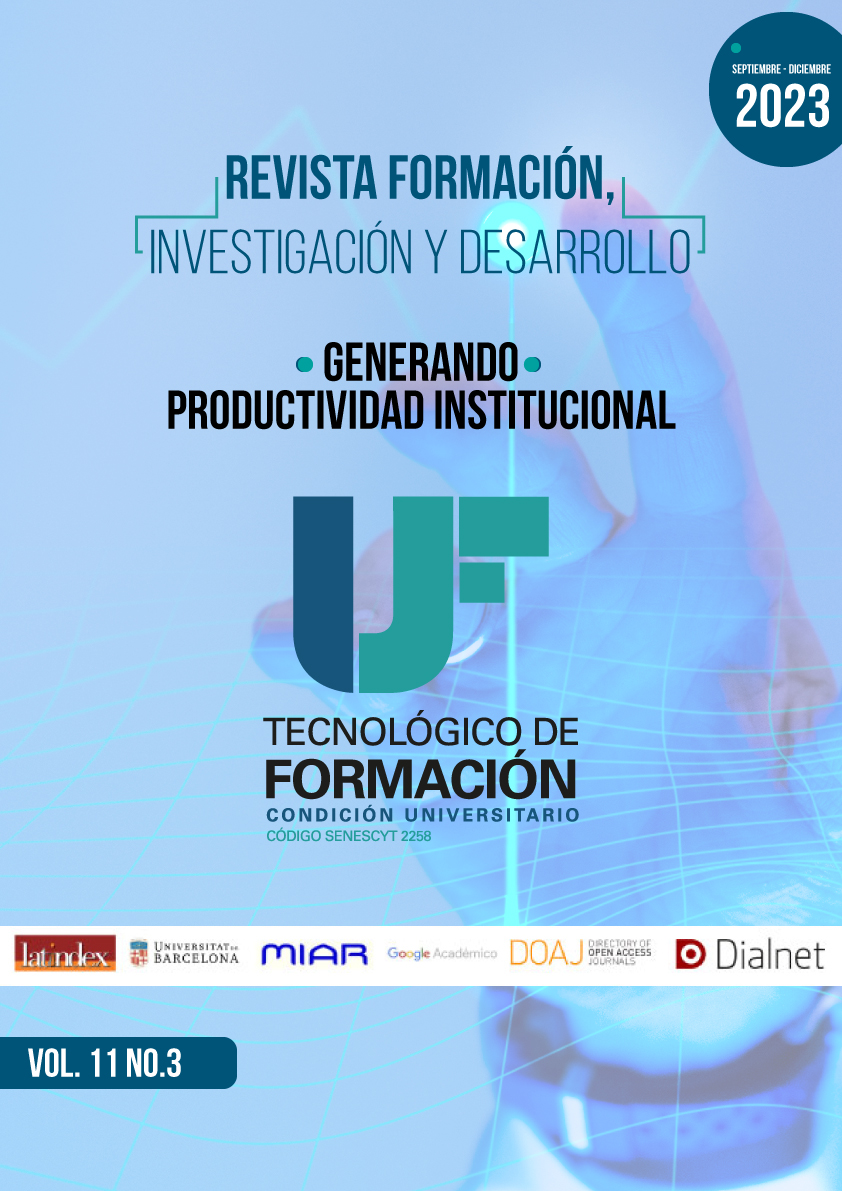The Philosophical Foundations of Education as a Subject of Education Careers and the Integration of their Contents in the Curricular Process
Main Article Content
Abstract
The research topic is based on the insufficiencies in the treatment of the contents of Philosophy, which limits its appropriation as a general methodology by future professionals, which is identified as a problem in higher education; From the investigative study, we contribute to its improvement through the development of a methodology for integrating the contents of Philosophy based on an integrative didactic conception of this discipline that contributes to its appropriation with a professional approach. The importance lies in revealing the system of dialectical relationships of the professional pedagogical approach from the teaching-learning process of Philosophy and its transdisciplinary character that are synthesized in integration, its methodological function, as well as its formative intentionality that contributes to particular didactics. The practical significance comes from the impact of this proposal on
the improvement of the teaching-learning process of Philosophy in accordance with the demands carried out in the transformations of higher education.
Article Details

This work is licensed under a Creative Commons Attribution-NonCommercial-ShareAlike 4.0 International License.
Este trabajo tiene licencia DE Atribución/Reconocimiento-NoComercial-CompartirIgual 4.0 Internacional. CC BY-NC-SA 4.0.
How to Cite
References
Abad, G., y Fernandez, K. (2011). LA INTEGRACIÓN DE CONTENIDOS EN EL PROCESO DE ENSEÑANZA - APRENDIZAJE DE LAS CIENCIAS EN LA SECUNDARIA BÁSICA: POSIBILIDADES DE CONCRECIÓN EN LA PRÁCTICA ESCOLAR. Cuadernos de Educación y Desarrollo, 3(25), 1-20.
Aguilar, F. (2019). Didactica de la Filosofia. Revista de Estudios y Experiencias en Educación, 18(38), 129-150.
Bioccoca, R. (2017). Análisis crítico-filosófico de las potencialidades educativas de la enseñanza basada en competencias. Educacion y educadores, 20(2), 267-281.
Borja , M., Vazquez, R., y Zeballos, J. (2017). La Filosofía Analítica: su enfoque hacia el proceso de enseñanza-aprendizaje. Sophia, 22(1), 149-169.
Camacho, L., y Morales, H. (2020). ilosofía de la Educación y pedagogía de la enseñanza en la formación del profesorado. Estudio de caso, percepción del estudiantado. Revista Educacion, 44(1), 1-30.
Correa, L. (2012). La enseñanza de la filosofía y sus contribuciones al desarrollo del pensamiento. Sophia, Colección de Filosofía de la Educación(12), 67-82.
Davidov, V., y Slobódchikov, V. (1991). La enseñanza que desarrolla en la escuela del desarrollo. Moscú: Progreso.
Elío, d. (2021). Medicina y Filosofia. Revista Medica La Paz, 27(1), 96-92.
Garcia, M. (16 de septiembre de 2021). ClaseV. Obtenido de ClaseV:
https://clasev.com/mod/page/view.php?id=12512#:~:text=El%20asentamiento%20de%20la%
Filosof%C3%ADa,al%20estudio%20de%20la%20educaci%C3%B3n.
Horruitiner, P. (2006). La universidad cubana: el modelo de formación . La Habana: Felix Varela.
Leal, V., Cortón , B., y Cespedes, J. (2021). Metodología para la dirección del proceso enseñanza-aprendizaje del Marxismo Leninismo en universidades cubana. Revista Dilemas Contemporáneos: Educación, Política y Valores.(2), 1-17.
Mark, J. (6 de octubre de 2020). World History Enciclopedia. Obtenido de World History Enciclopedia: https://www.worldhistory.org/trans/es/1-340/filosofia/
Martinez, B. (2016). Apuntes de Filosofia. San Jose: Edin.
Morales, G., Reza, L., Galindo, S., y Rizzo, P. (2019). ¿Qué significa “fundamentos filosóficos” de un modelo educativo de calidad? Revista Ciencia UNEMI, 12(31), 116 - 127.
Moreno, J. (2018). FUNDAMENTOS FILOSÓFICOS DEL MODELO EDUCATIVO FINLANDÉS COMO UN REFERENTE PARA LA SUPERACIÓN DE ROBLEMÁTICAS EDUCATIVAS PROPIAS DE CONTEXTOS EMERGENTES . Quito: Universidad Politecnica Saleciana de
Quito.
Ramos, G. (2015). Los fundamentos filosóficos de la educación como reconsideración crítica de la filosofía de la educación. Revista Iberoamericana de Educación, 36(8).
Rivero, O. (3 de mayo de 2017). Red Social Educativa. Obtenido de Red Social Educativa: https://redsocial.rededuca.net/la-filosofia-de-educacion-como-fundamento-teorico-de-la-teoriaeducativa
Salazar, C. (2020). Desarrollo Curricular en la Educación Superior: análisis de los estudios de Postgrado en una universidad venezolana. EDUCAB(20), 1-10.
Santana, J. (1995). Algunos problemas de la filosofÌa marxista y su enseñanza en Cuba. Temas, 3, 28-33.
Villanueva, J. (2007). DEFINIR LA FILOSOFÍA EN EL AULA UNA EXPERIENCIA METODOLÓGICA SIGNIFICATIVA EN EL PROCESO DE FORMACIÓN DOCENTE. Laurus, 13(24), 36-75

